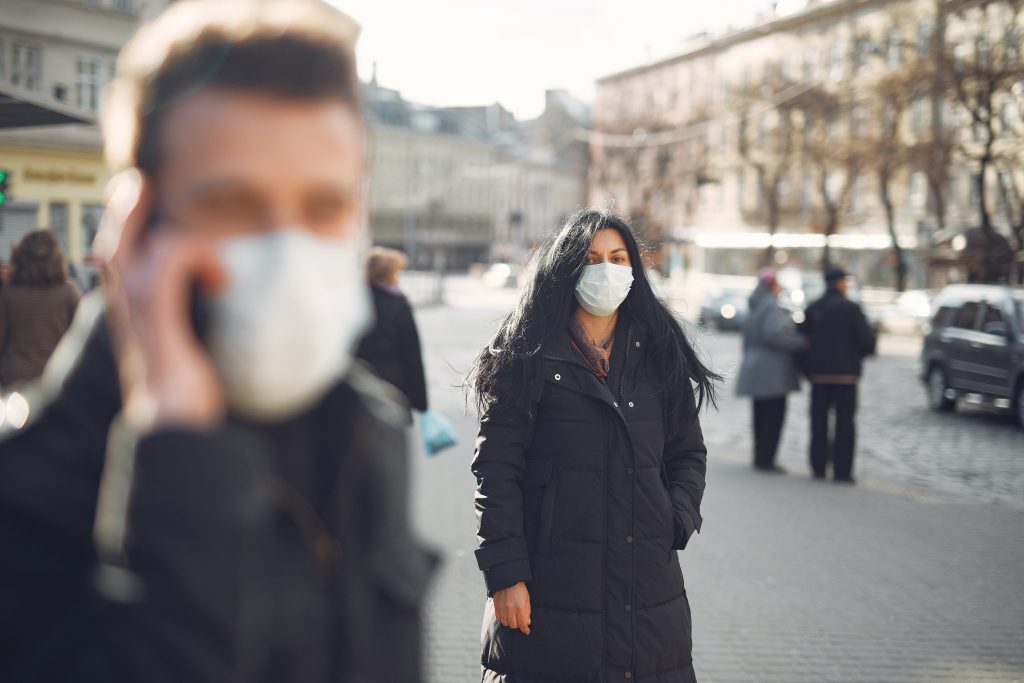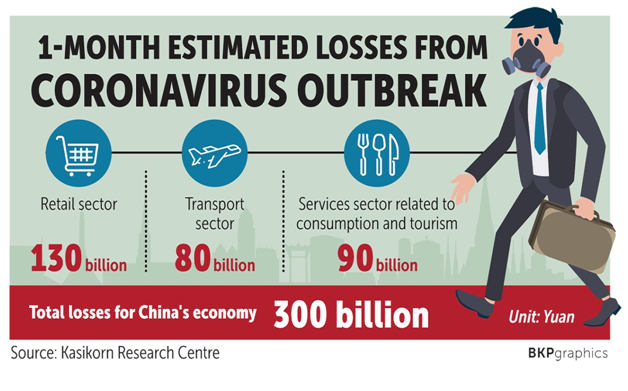The world is coming to terms with the devastating impact of the novel coronavirus. Pundits are comparing the situation to the 2008 global recession while some are painting an even bleaker picture. Almost no sector of the economy has been left unscathed by the COVID-19 pandemic. Be it real estate, hospitality, retail -millions of people have lost their jobs while many small-to-medium are on the verge of bankruptcy. This post summarizes the COVID-19 economic impact.
With the workforce stuck at home and supply chains being disrupted, the world is heading towards a global economic catastrophe. According to the International Monetary Fund, the global economy will contract by 4.9% this year as the overall damages of the pandemic will reach an astonishing $12 trillion.
Following are some of the major industries that have taken a hit and are bracing for more troubled times.
Real Estate
A survey by the National Association of Realtors on March 19 reported a decline in buyer interest jumping to 48%. The same figure was 16% when the organization conducted a similar survey on March 9. .The stock market correction was one of the major factors why buyer interest had gone down so rapidly.
The agents working with clients who wished to buy commercial properties saw an even bigger decrease in buyers’ interest. While the initial survey found only 17% of agents felt the virus had affected buyers’ attitudes, the second survey revealed the percentage to be around 46%.
But it’s not just the buyer interest, everything surrounding the retail market has been hampered by the pandemic. Apartments had banned open houses, real estate had halted brokerages and people were mostly self-isolating. On top of this, the closure of government recording offices in New York and several other states created yet another obstacle. These offices are critical to buying and refinancing, as all the deed filing and title searches take place inside them.
Fast forward to June, real estate is showing some signs of recovery. The latest report by ResearchandMarkets shows the global real estate rental market is estimated to grow from $1759.8 billion in 2019 to $1787.8 billion in 2020 at a CAGR of 1.6%. While this is a low growth rate, the market will recover further and grow at CAGR of 8% from 2021. In 2023, the market will reach $2216.2 billion.
Real estate agents have also adapted to the new normal and digitized their operations with online listings, video chats and virtual reality. Social distancing has reshaped the role of a real estate agent from information arbitrator to service provider and local market expert.
Retail
Coronavirus impact on retail is a bit more complex. Anyone that saw picture of supermarket aisles in March would’ve guessed that retailers were experiencing a huge boom due to panic-buying. To an extent, this was true. COVID-19 pandemic increased the demand for non-perishable goods in supermarkets. The demand for hand sanitizers in March increased by 255% in the United Kingdom according to Kantar. Likewise, Nielsen reported a 73% demand increase for the product during the four weeks preceding February 22.
However, the disruption in the supply-chains, lockdown and social distancing protocols eventually caused problems for supermarkets. Managing the workforce and inventory became a difficult task. Most panic buying resulted in a surge in sales of items like toilet paper, tissues, and long-life milk, while sales of other items went down.
At first, many countries implemented a lockdown where only stores dealing medicine and grocery items remained open. Brands such as Nike, Primark and Urban had to close shop. Luxury and fashion faced the worst crisis in years. Consultancy firm Bain & Company predicts that the $310 billion luxury industry will see its sales decline by up to 35% this year.
As the world moves toward some semblance of normalcy, the retail sector has a chance to recover. Most retailers will be looking at Independence Day as the next big opportunity to boost sales. It’s estimated that 86% of Americans shop on this holiday, which makes it a big revenue-maker for the retail sector.
Hotels
One of the biggest areas of COVID-19 economic impact has been on the hospitality industry. Hotel occupancy declined in March by 58% according to Statista. The American Hotel & Lodging Association reported that four million hotel employees would see their jobs being eliminated if things did not improve. The industry sought a $150 billion bailout from the White House in the United States and is awaiting similar packages across the world.
“The impact to our industry is already more severe than anything we’ve seen before, including September 11th and the great recession of 2008 combined,” American Hotel & Lodging Association CEO and President Chip Rogers said in a press release. Losses in the industry along with the unemployment took a heavy toll on the global economy. Around March, the Wall Street Journal reported that Marriott, the biggest hotel company in the world, had begun furloughing tens of thousands of employees.
Up until now, the hospitality and leisure industry has lost more than 7.6 million jobs, this makes for 47% of all jobs lost due to the pandemic. Recently, Hyatt has announced it will lay off more than 1300 employees around the world. While the industry in the USA and other developed countries have received generous stimulus packages, they are seeking further assistance as the revenue has slumped by 70%.
Air Travel
COVID-19 economic impact has been great on the airline sector. Airlines in the United States asked for a $50 bailout to survive the impact of the novel coronavirus shutdown. The virus itself became a global pandemic due to the infected traveling across countries. As a result, the airline was one of the first to be impacted. Currently, most are only allowing a select few flights for international travel .
Initially, Airlines for America, an organization that represents carriers such as American Airlines, United and Delta asked for help in the form of loan guarantees and direct aid. “The rapid spread of Covid-19, along with the government and business-imposed restrictions on air travel, are having an unprecedented and debilitating impact on US airlines,” AFA president Nicholas Calio said.”Carriers have seen a dramatic decline in demand, which is getting worse by the day,” he explained in a statement.
Centre for Aviation, which analyzes the airline industry predicted that most airlines would go bankrupt in May if the situation continued to deteriorate. However, the American government has since released a stimulus of $50 billion which is keeping airlines from massive downsizing.
But the industry is not of the waters just yet. With cash reserves running down, fleets grounded and planes flying at less than half capacity, most carriers are barely surviving.
Finding Help with Moving Professionals
We hope you found this blog post on Impact of COVID-19 on Real Estate & Other Sectors of the Economy informative. Be sure to check out our post on Impact of COVID-19 on Real Estate Industry for more great information!
Need to Move Furniture? With All Around Moving you don’t need to worry about any unexpected charges. We are always upfront about our prices and take pride in taking care of every need of our customers before and during the move. For a stress-free move where you don’t need to take care of anything contact us today! We are “A+” rated members of the Better Business Bureau and a member of Greater New York and Miami Dade Chambers of Commerce.
Discover how uniquely priced we are compared to other moving companies in New York, NY & Miami, Florida. Get a moving quote specifically tailored to your moving needs by calling us TODAY!
Have Experience in the Moving Industry? Want an Additional Income Stream? Work With All Around Moving!
All Around Moving’s Work With Us program provides experienced moving consultants with the opportunity to run their own Relocation Consultant business from anywhere in the USA. We provide licensing, dedicated phone lines and email hosting, moving software for lead tracking, invoicing, and complete set up.
We’ll even provide the carriers, or you can use your own. A nominal one-time start up fee gives you initial-customer-leads to get your business up and running. There are no recurring expenses, except purchasing your own leads. We share profits 50-50 with you from all jobs you book with us. Click here to learn more.








